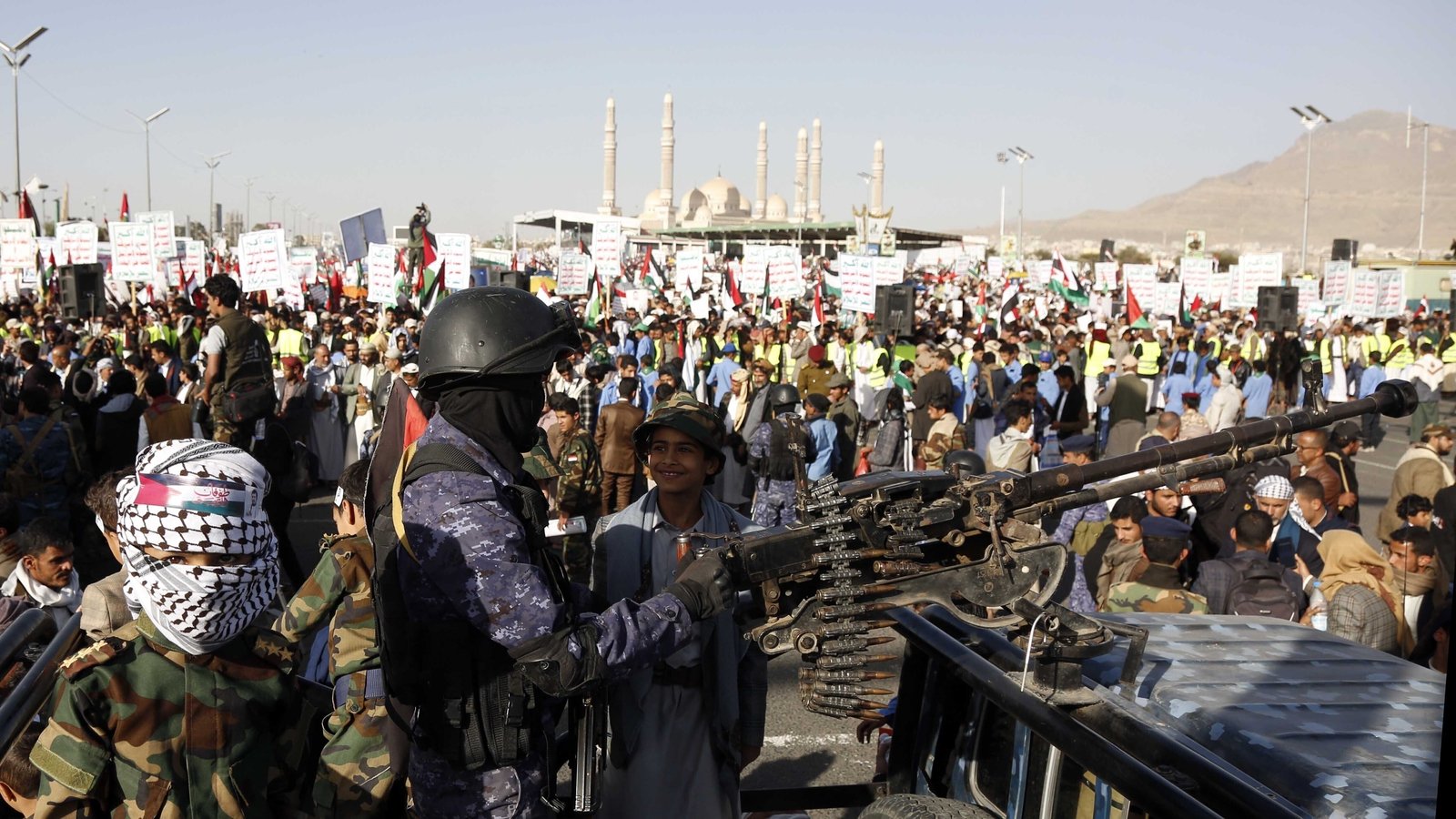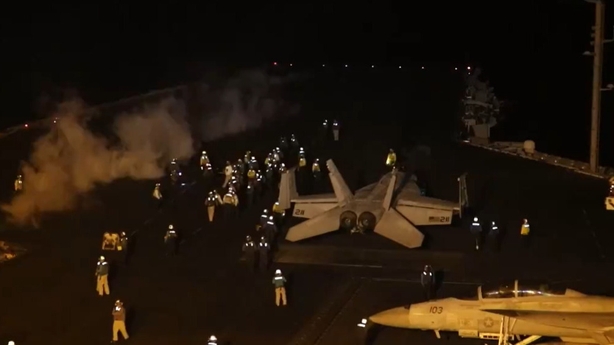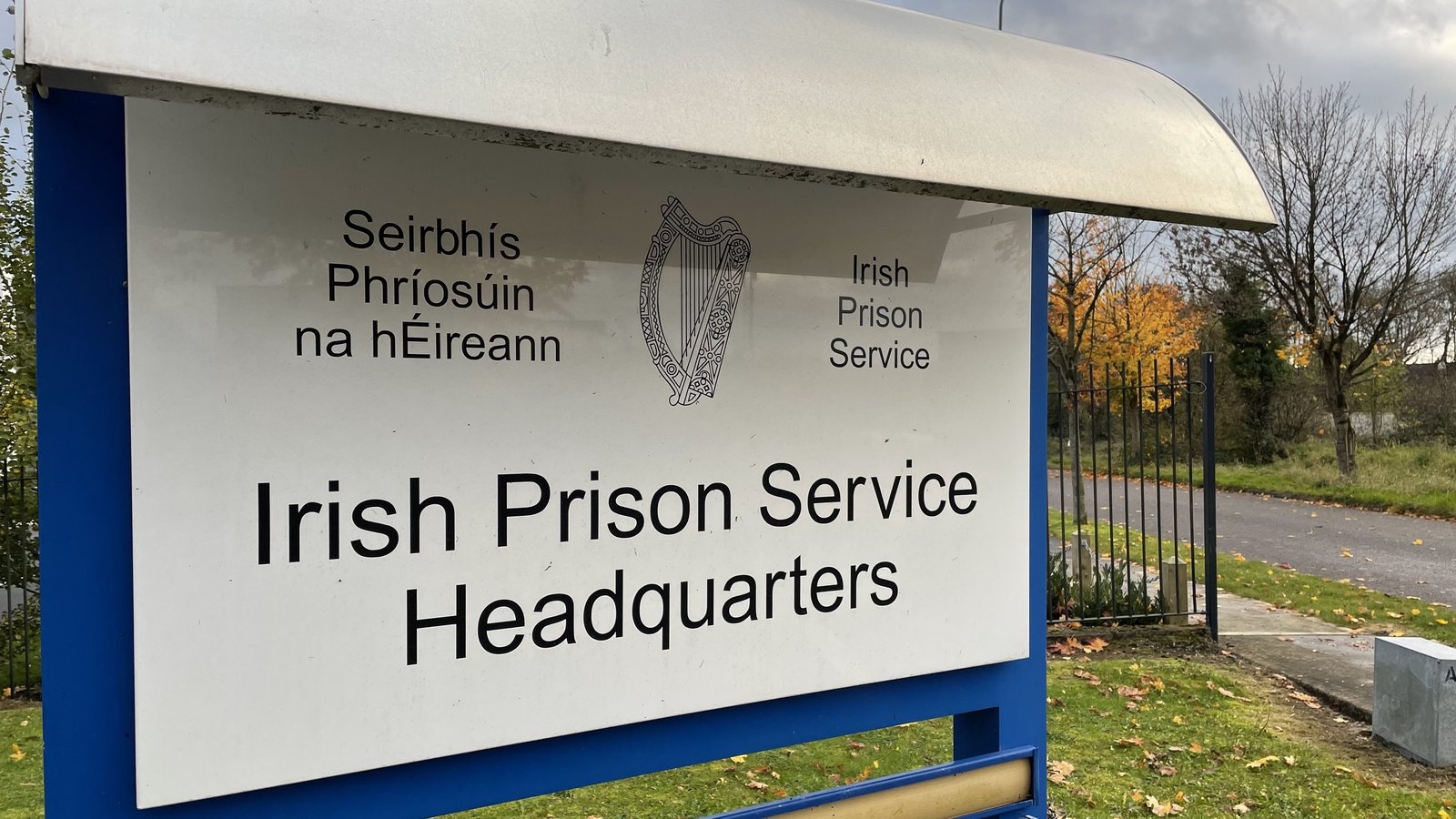US carries out strikes in Yemen for second day

The United States carried out an additional strike against Yemen’s Houthi forces, two officials told Reuters, after President Joe Biden’s administration vowed to protect shipping in the Red Sea.
The latest strike, which one of the US officials said targeted a radar site, came a day after dozens of US and British strikes on the Iran-backed group’s facilities.
The officials, speaking on the condition of anonymity, did not provide more details. Radar infrastructure has been a key target in the US military effort to halt Houthi attacks in the Red Sea.
The Houthi movement’s television channel Al-Masirah reported that the United States and Britain were targeting the Yemeni capital Sanaa with raids.
Intensifying concerns about a widening regional conflict, US and British warplanes, ships and submarines on Thursday launched missiles against targets across Yemen controlled by the group, which has cast its maritime campaign as support for Palestinians under siege by Israel in Hamas-ruled Gaza.
Even as Houthi leaders swore retaliation, Mr Biden warned earlier yesterday that he could order more strikes if they do not stop their attacks on merchant and military vessels in one of the world’s most economically vital waterways.
“We will make sure that we respond to the Houthis if they continue this outrageous behaviour,” Mr Biden told reporters during a stop in Pennsylvania.
Witnesses confirmed explosions, Yemen time, at military bases near airports in the capital Sanaa and Yemen’s third city Taiz, a naval base at Yemen’s main Red Sea port Hodeidah and military sites in the coastal Hajjah governorate.
White House spokesperson John Kirby said the strikes had targeted the Houthis’ ability to store, launch and guide missiles or drones, which the group has used in recent months to threaten Red Sea shipping.
The Pentagon said the US-British assault reduced the Houthis’ capacity to launch fresh attacks. The US military said 60 targets in 28 sites were hit.

The Houthis, who have controlled most of Yemen for nearly a decade, said five fighters were killed, but they vowed to continue their attacks on regional shipping.
The UK Maritime Trade Operations information hub said it had received reports of a missile landing in the sea around 500 meters from a ship about 90 nautical miles southeast of the Yemeni port of Aden.
The shipping security firm Ambrey identified it as a Panama-flagged tanker carrying Russian oil.
Drone footage on the Houthis’ al-Masirah TV showed hundreds of thousands of people in Sanaa chanting slogans denouncing Israel and the United States.
“Your strikes on Yemen are terrorism,” said Mohammed Alial-Houthi, a member of the Houthi Supreme Political Council. “The United States is the Devil”.
Mr Biden, whose administration removed the Houthis from a State Department list of “foreign terrorist organizations” in 2021, was asked by reporters if he felt the term “terrorist” described the movement now. “I think they are,” he said.
The Red Sea crisis is part of the violent regional spillover of Israel’s war with Hamas, an Iran-backed Islamist group, in the Palestinian enclave of Gaza.
Hamas militants rampaged through southern Israel on 7 October, killing 1,200 people and seizing 240 hostages. Israel has responded by laying waste to large sections of Gaza in an effort to annihilate Hamas. More than 23,000 Palestinians have been killed.
Tobias Borck, a Middle East security expert at Britain’s Royal United Services Institute, said the Houthis wanted to portray themselves as champions of the Palestinian cause but were mainly concerned about retaining power.
At the United Nations Security Council, US Ambassador Linda Thomas-Greenfield defended the Yemen strikes, saying they were intended to “to disrupt and degrade the Houthis’ ability to continue the reckless attacks against vessels and commercial shipping”.
Russia’s UN Ambassador Vassily Nebenzia said earlier that the US and Britain “single-handedly triggered a spillover of the conflict (in Gaza) to the entire region”.
In Washington, Mr Kirby said, “We’re not interested in … a war with Yemen”.
In a poor country only just emerging from nearly a decade of war that brought millions to the brink of famine, people fearing an extended new conflict queued at gas stations.





